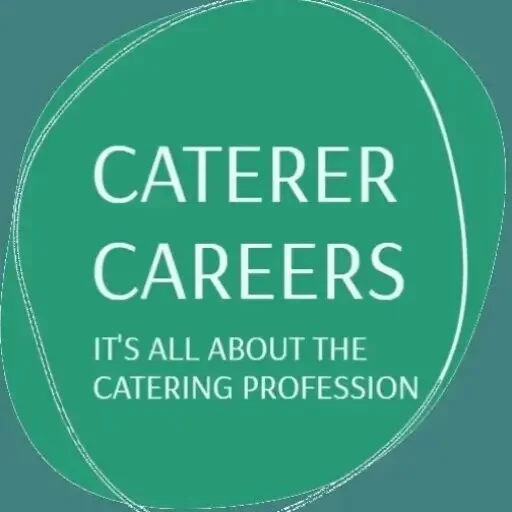
A McDonald’s staff.
Working at McDonald’s provides a solid foundation in customer service, teamwork, and operational efficiency. However, to advance your career, whether within the fast-food industry or in other sectors, additional training can be immensely beneficial.
Here are some key trainings to consider if you’ve worked at McDonald’s and are looking to take the next step in your professional journey.
1. Customer Service and Communication Skills
While McDonald’s already hones your customer service abilities, formal training can refine these skills and make you more competitive in the job market.
Courses in customer service excellence, conflict resolution, and communication can help you better handle customer interactions and improve your interpersonal skills. Many community colleges and online platforms offer such courses.
Benefits:
- Improved ability to handle difficult customers
- Enhanced communication skills
- Better teamwork and collaboration
2. Food Safety and Hygiene Certifications
McDonald’s employees receive basic food safety training, but obtaining formal certifications can open doors to higher positions in the food industry.
The ServSafe Food Handler Certification is a widely recognized credential that demonstrates your knowledge of food safety practices. Additionally, advanced certifications like the ServSafe Manager Certification can qualify you for supervisory roles.
Benefits:
- Compliance with industry standards
- Enhanced job opportunities in the food service industry
- Greater responsibility and potential for higher wages
3. Leadership and Management Training
If you’re aiming for a supervisory or managerial role, leadership training is essential. Many organizations offer courses in leadership development, management principles, and team dynamics.
These programs often cover important topics such as decision-making, conflict resolution, and employee motivation.
Benefits:
- Preparation for leadership roles
- Improved problem-solving abilities
- Enhanced team management skills
4. Hospitality and Catering Courses
Expanding your expertise beyond fast food can be advantageous. Hospitality and catering courses provide knowledge on different aspects of the hospitality industry, including event planning, customer service, and advanced culinary skills.
These courses are available at vocational schools, community colleges, and online platforms like Coursera and Udemy.
Benefits:
- Broader career opportunities within the hospitality industry
- Advanced culinary skills
- Knowledge of event planning and management
5. Business Administration and Marketing
For those interested in the business side of the food industry, courses in business administration and marketing are invaluable. These courses cover a range of topics, including financial management, marketing strategies, and business operations.
A degree or certification in business administration can be particularly beneficial for those aspiring to own or manage a restaurant.
Benefits:
- Understanding of business operations and financial management
- Ability to develop and implement marketing strategies
- Preparation for entrepreneurial ventures
6. Barista and Coffee Specialist Training
With the rise of coffee culture, barista skills are in high demand. Training as a barista can diversify your skill set and make you more versatile within the food and beverage industry.
Courses cover everything from brewing techniques to customer service and are often offered by coffee shops, specialty schools, and online platforms.
Benefits:
- New job opportunities in cafes and coffee shops
- Knowledge of advanced coffee-making techniques
- Enhanced customer service skills
7. Technology and Digital Skills
In today’s digital age, technology skills are crucial. Courses in basic computer skills, digital marketing, and social media management can be incredibly beneficial.
Understanding how to use technology effectively can improve your efficiency and open up new career opportunities in various fields, including marketing and administrative roles.
Benefits:
- Improved digital literacy
- Ability to leverage social media for business purposes
- Enhanced efficiency and productivity in various roles
8. Nutrition and Dietetics
With a growing focus on healthy eating, knowledge in nutrition and dietetics is becoming increasingly valuable. Courses in this field cover the fundamentals of nutrition, dietary planning, and health promotion.
This training is particularly useful for those looking to move into roles that focus on healthy eating and wellness.
Benefits:
- In-depth understanding of nutrition and healthy eating
- Ability to create dietary plans and promote health
- Opportunities in wellness and health-focused roles
9. Culinary Arts Programs
For those passionate about cooking, advanced culinary arts programs can provide the skills needed to excel in the kitchen. These programs cover a wide range of cooking techniques, ingredient knowledge, and kitchen management skills.
Attending a culinary school or taking online culinary courses can significantly enhance your cooking skills.
Benefits:
- Advanced cooking techniques
- Knowledge of diverse cuisines
- Preparation for roles as chefs or culinary experts
10. Project Management Certification
Project management skills are valuable in many industries. Courses and certifications, such as the Project Management Professional (PMP) certification, teach you how to plan, execute, and manage projects effectively.
These skills are highly transferable and can benefit you in various career paths.
Benefits:
- Improved project management skills
- Ability to handle complex tasks and projects
- Enhanced organizational and planning abilities
Conclusion
The skills and experiences gained at McDonald’s provide a strong foundation for career advancement. By pursuing additional training and certifications, you can expand your skill set, increase your job opportunities, and achieve your career goals.
Whether you aim to stay in the food industry or explore new fields, the right training can make all the difference in your professional journey.
4o

